FUTURAMA REDUX – urban mobility after cars & oil
FUTURAMA REDUX
Format: Headline
2016 –
Team: Florian Lorenz, Joshua Grigsby, Georg Wieser, Yvonne Biering, Christoph Köhler, Pia Prantl, Matthieu Floret, Francesco Remonato
Partners: AIA Seattle, UNDP-GEF project “City of Almaty Sustainable Transport", Coltura, DLR Group, Seattle Public Library, Sindikat Biciklista, Technical Museum Nikola Tesla, Greenpeace Croatia, HealthBridge Foundation of Canada, Austrian Consulate General Hong Kong, Hong Kong Planning Department, City Gallery Hong Kong, City of Vienna, World Urban Campaign, Low Carbon City Forum, Wiener Stadtwerke, Urban Future Global Conference
The project builds on the work of the team involved in the project [r&d] Postcarbon Vienna.
An urban research and design project investigating the future of mobility beyond the use of fossil fuels.
FUTURAMA REDUX – urban mobility after cars and oil opens a creative space to develop visions and articulate pathways for context-sensitive post-carbon transition. The project includes an exhibit, symposia, study tours and futuring workshops.
FUTURAMA REDUX asks how a transition to fossil-fuel-free mobility might foster sustainability, resilience, and security while improving quality of life.
FUTURAMA REDUX builds on a backcasting scenario for fossil-fuel free mobility in the year 2050 and a related interdisciplinary process of imagineering to develop pathways for postcarbon urban development.
FUTURAMA REDUX argues that a shift beyond fossil fuels is necessary and vital for maintaining resilient urban environments and presents models of living and mobility that require no fossil-fuel energy input.
the exhibition
FUTURAMA REDUX is simultaneously inspired by and a critique of the original Futurama exhibit from the 1939 World’s Fair in New York City.
It follows a backcasting approach to develop a best-case thought experiment that moves the present-day to 2050, when Vienna has become a leading city in post-carbon transition. But rather than providing a prescriptive vision of a simple solution to complex problems, the exhibition proposes a multifaceted loop of consideration, experimentation, participation, and adaptation.
The exhibition begins by revisiting the original FUTURAMA and the urban changes it inspired before conducting a brief overview of the age of cheap energy and its possible end. A toolbox of urban strategies and concepts for post-carbon transition is then sketched out and the city is reframed as an urban ecosystem. Next, we pull back from planning and design to consider concepts such as collapse, urbanity, resilience, and utopia. Finally, we step into a different sort of vision of the future, a FUTURAMA REDUX, dynamic and urbane, not predefined by a rigid system but responsive to changing conditions and our own evolving preferences.
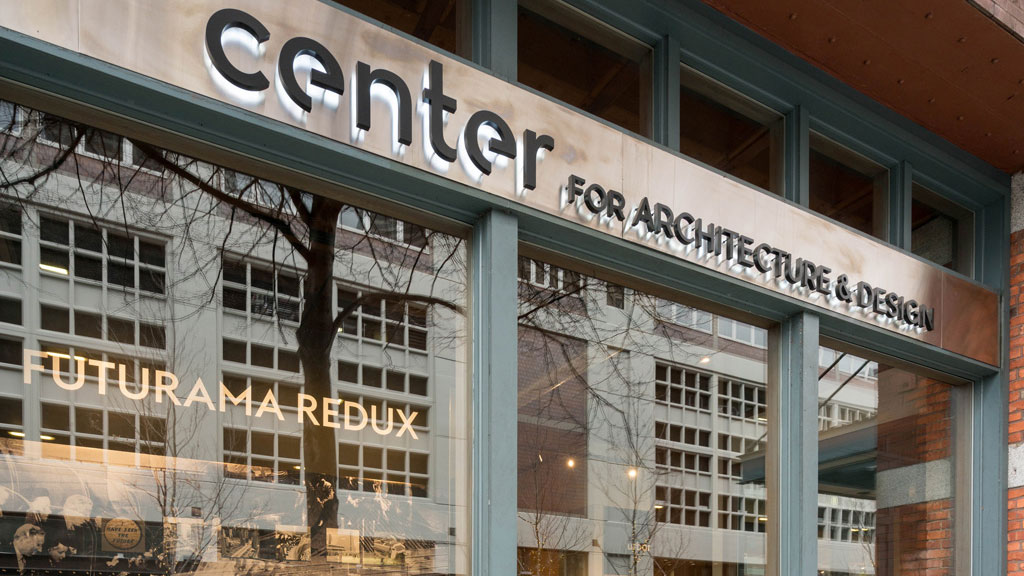
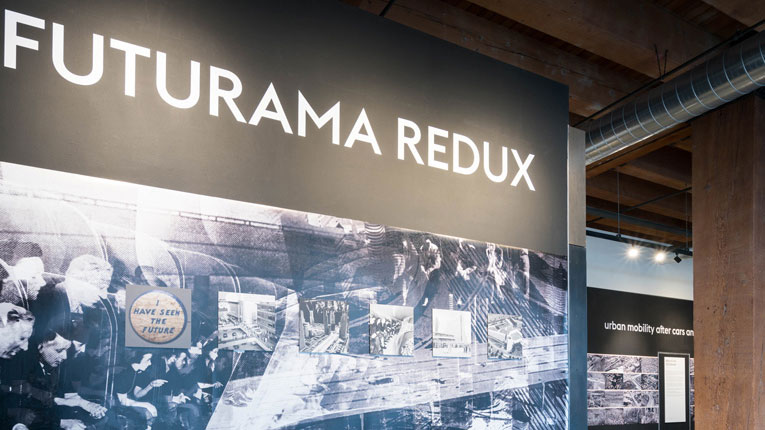
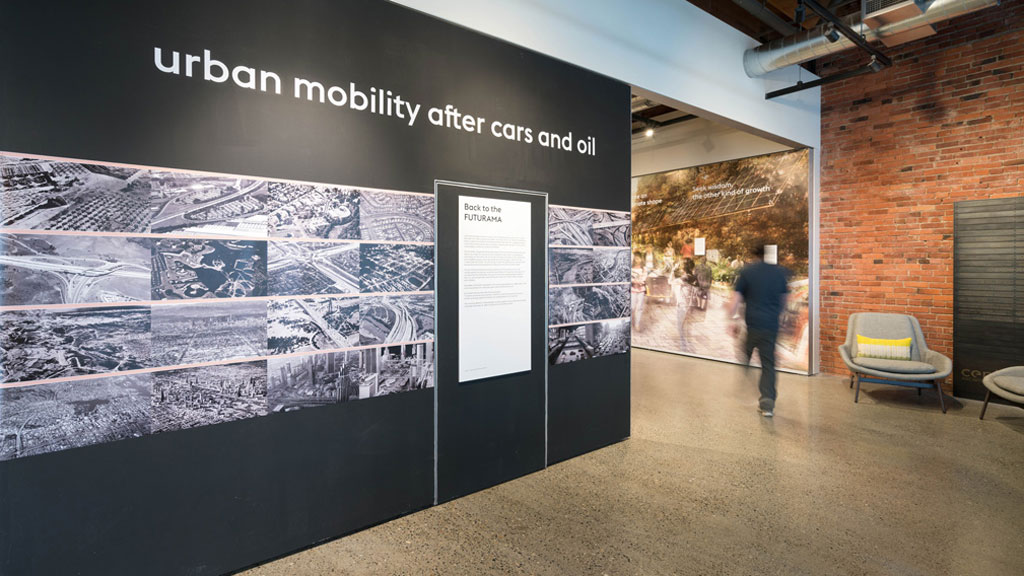
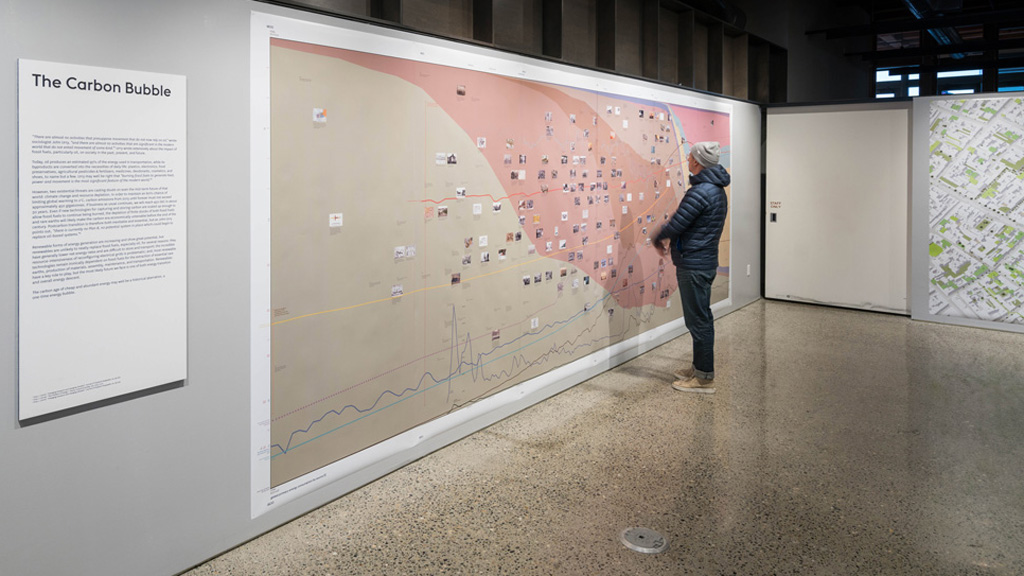
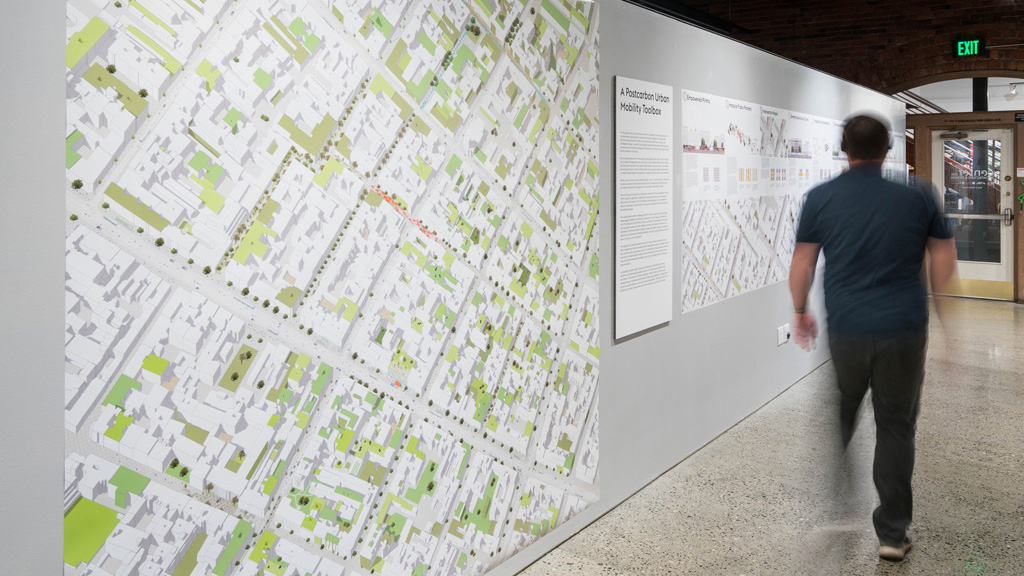
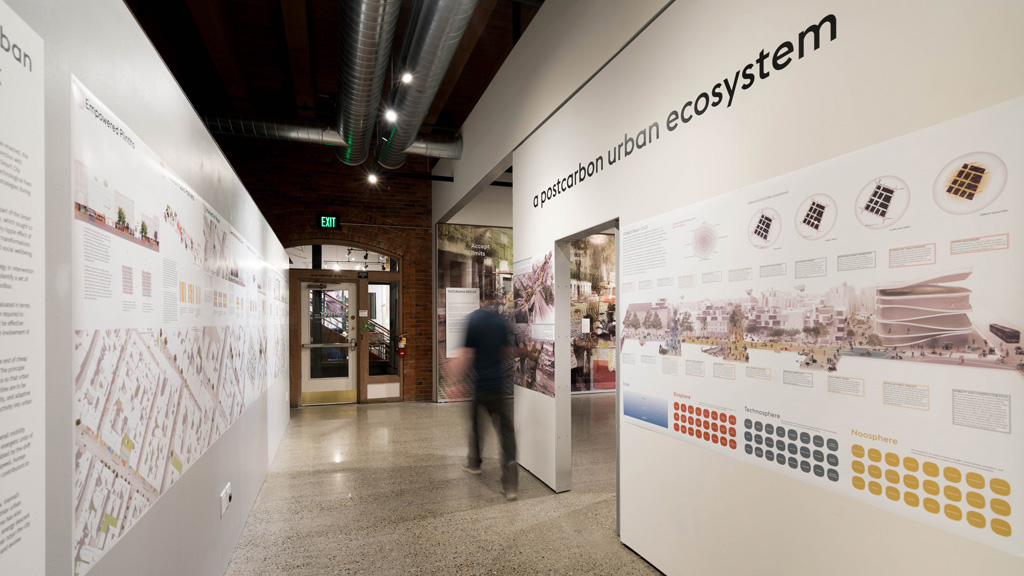
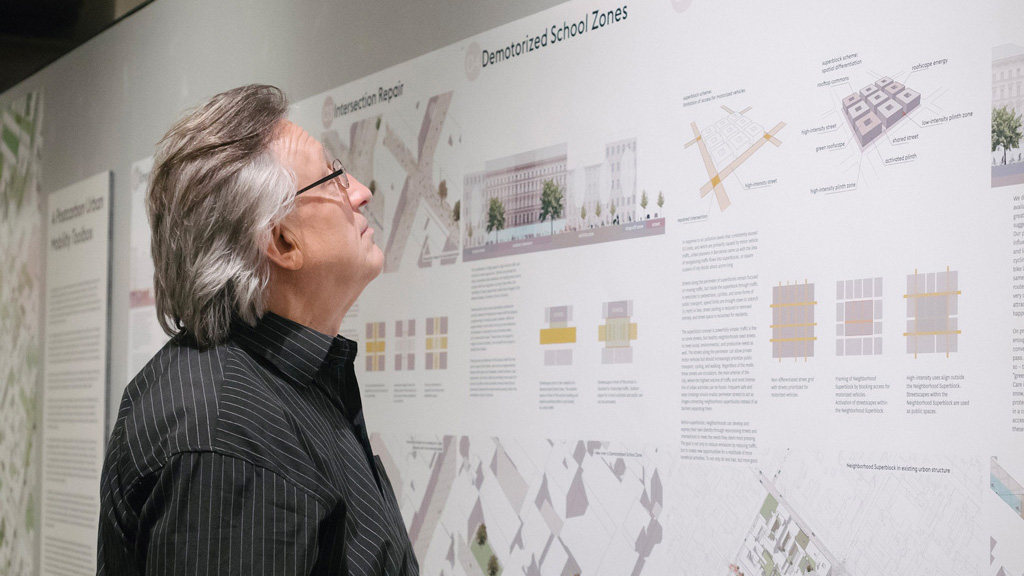
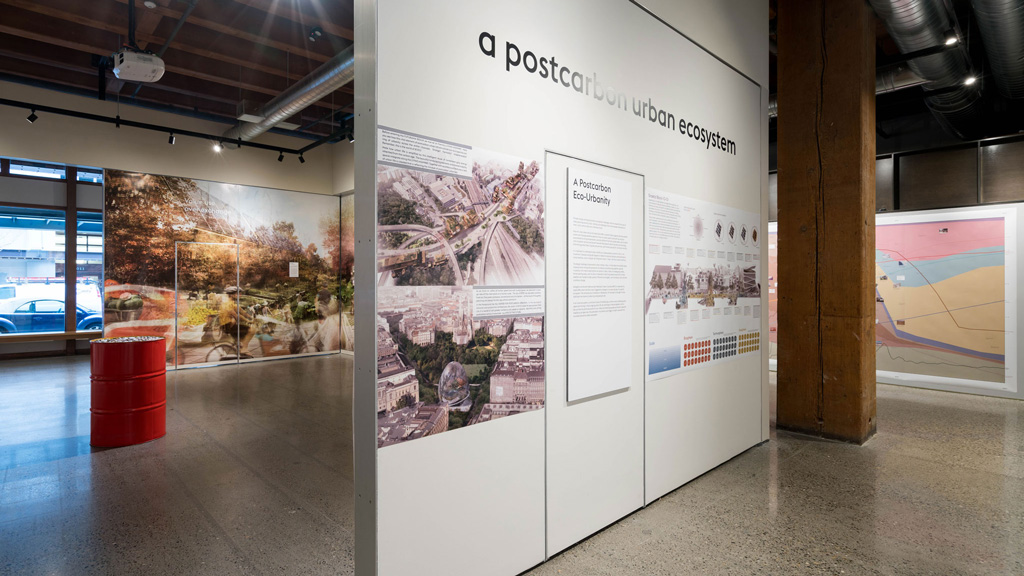
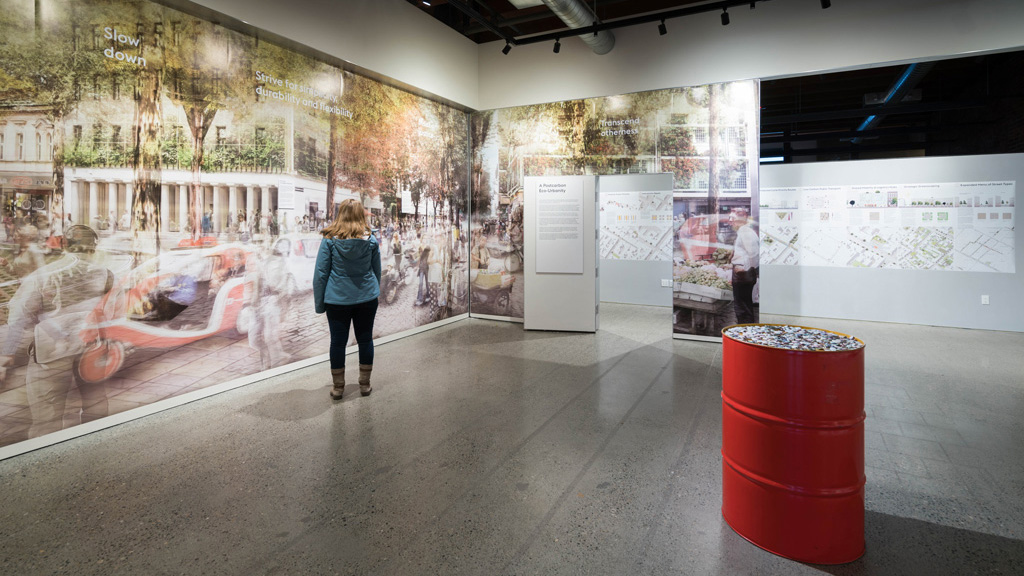
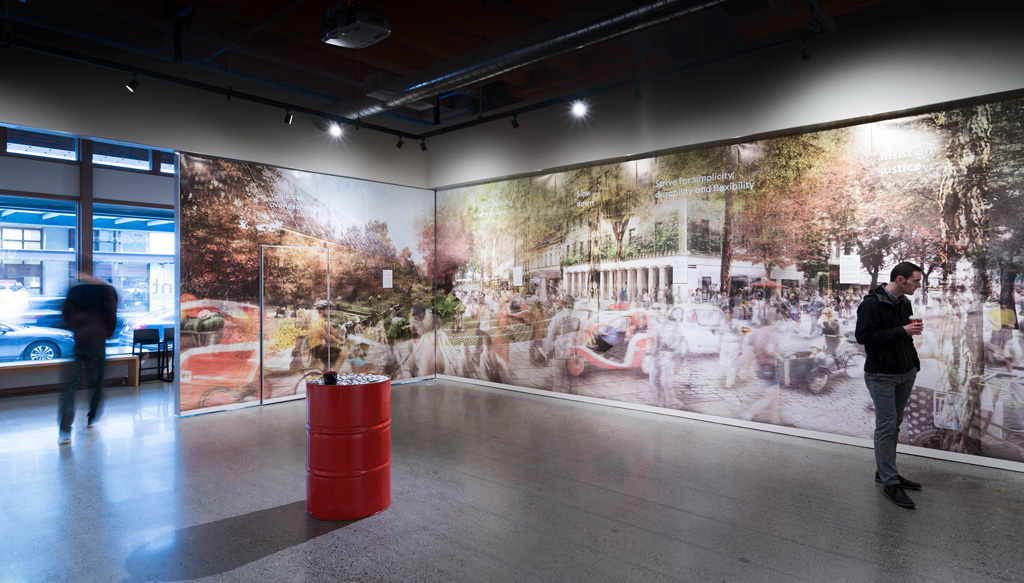
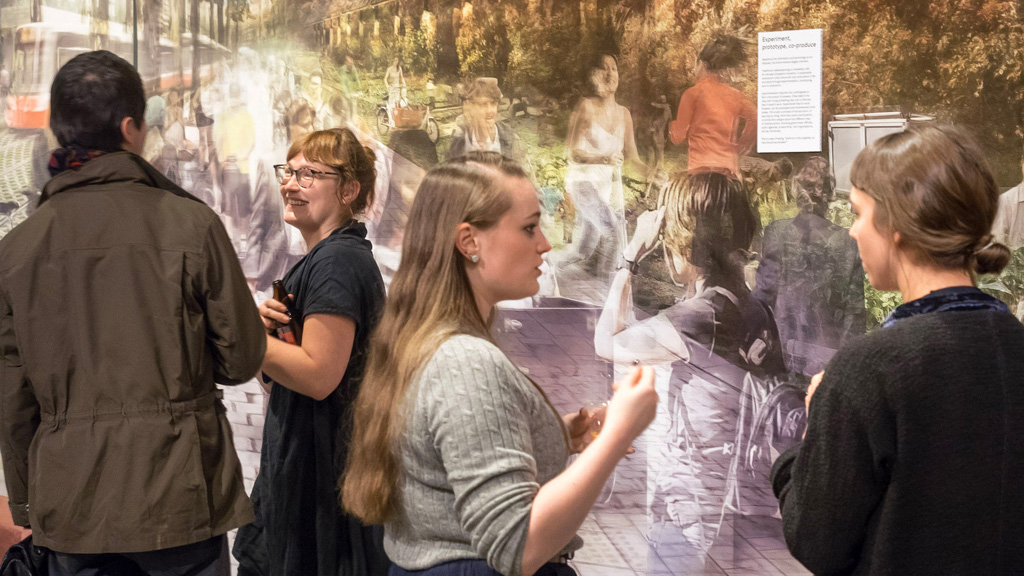
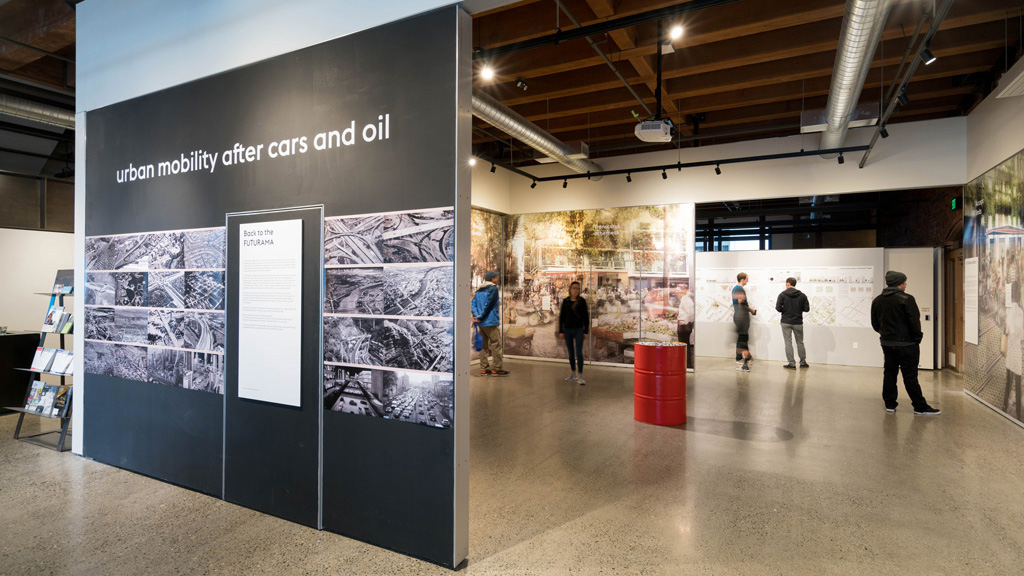
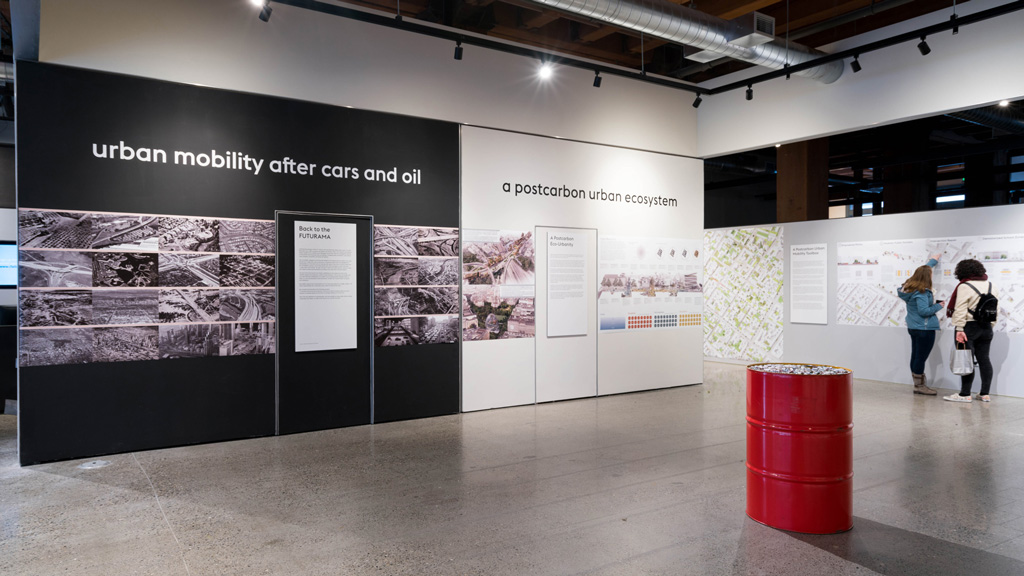
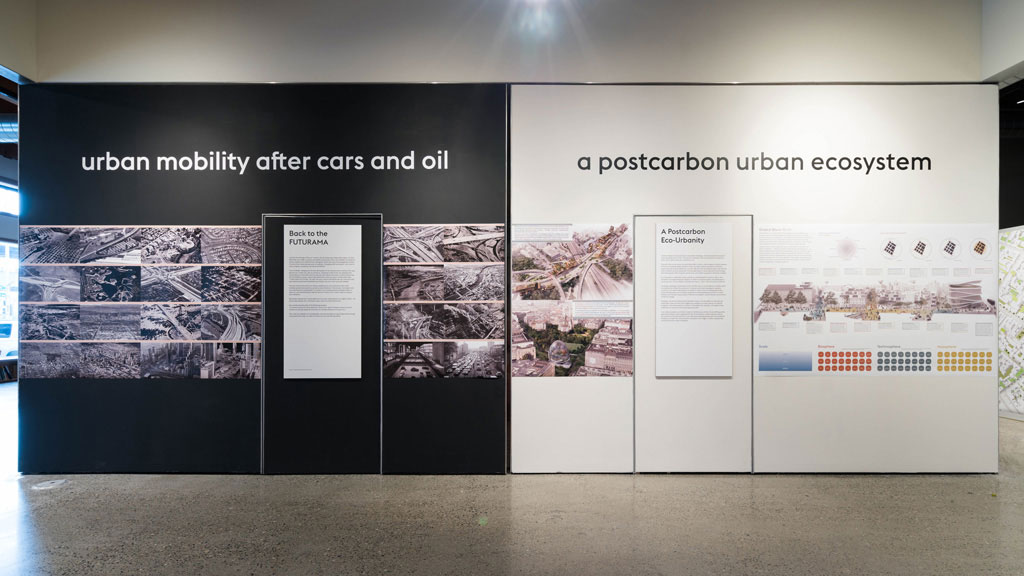
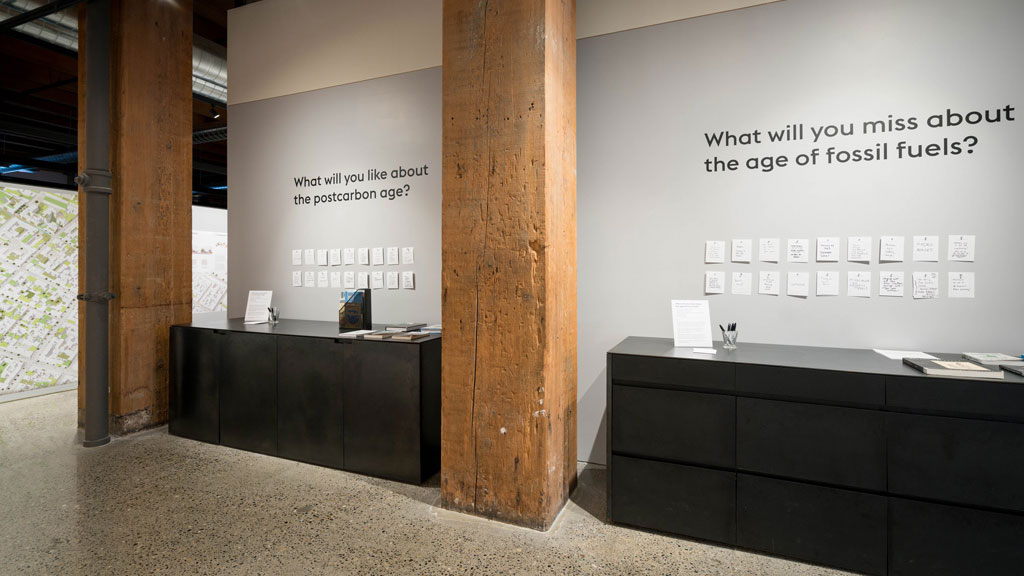
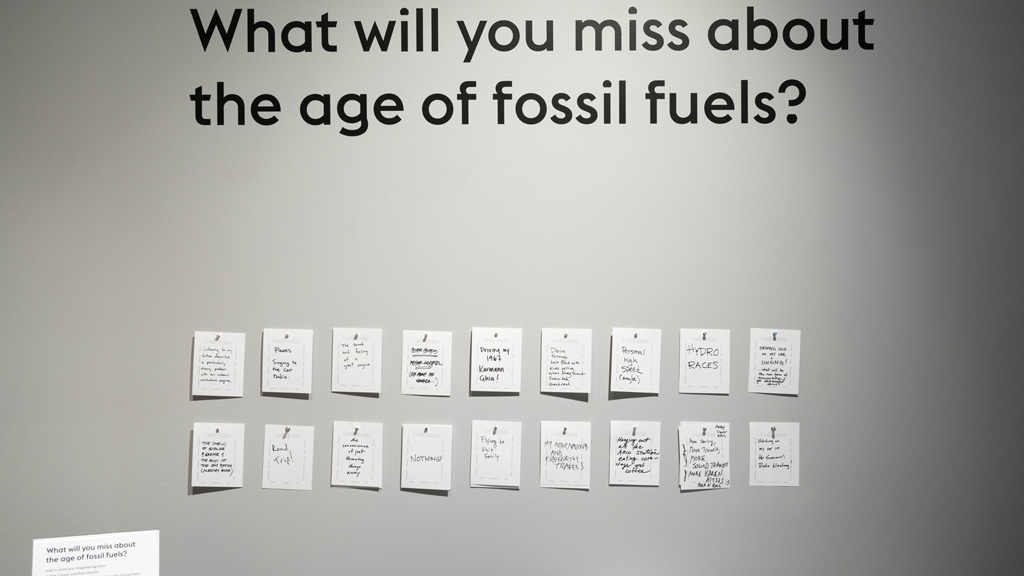
Exhibition views of FUTURAMA REDUX - urban mobility after cars and oil at the Center for Architecture and Design, Seattle, Washington, USA. December 2017 - February 2018. Images by AIA Seattle, photographers Trevor Dykstra and Ken Winnick.
interactive formats
The project adapts several interaction formats to foster a network of urban actors to lead urban transformation beyond the use of fossil fuels.
Symposia
The symposia are inherently interdisciplinary and welcome local and international experts from government, academia, NGOs and the private sector.
Study Tours
These strategic excursions use environmentally-friendly modes of transport to assess existing urban conditions and identify challenges as well as opportunities for post-carbon transition pathways.
Futuring Workshops
These interdisciplinary workshop settings build on the assessments made during the Study Tours to co-create visions and pathways and urban actions as first stepping stones towards post-carbon transition of urban mobility systems. Imagineering Workshops open new perspectives for urban innovation for actors in the public, private and academic domain.
project history
Center for Architecture and Design. Seattle, Washington, USA. 7 December 2017 – 17 February 2018.
Full exhibition in version with updated content for North America. In cooperation with the American Institute of Architects, Seattle Chapter. Estimated 1.800 visitors. See images of the exhibition above.
Almaty, Kazakstan. 16-17 November 2017.
Showing of exhibition excerpt during final conference organized by the UNDP-GEF “City of Almaty Sustainable Transport”.
Seattle Central Library. Seattle, Washington, USA. 8 – 16 September 2017.
Full exhibition within the community program of Seattle Design Festival. In cooperation with Coltura, DLR Group and Seattle Public Library. Seattle Central Library created a visitors count documenting about 2.000 visitors during the showing.
Technical Museum Nikola Tesla. Zagreb, Croatia. 11 - 18 March 2017.
Full exhibition. In cooperation with Sindikat Biciklista, Technical Museum Nikola Tesla and Greenpeace Croatia.
United Nations Habitat III Conference. Quito, Ecuador. 15 - 20 October 2016.
Exhibition Excerpt. In cooperation with HealthBridge Foundation of Canada.
City Gallery, Hong Kong, China. 31 September – 16 October 2016.
Full exhibition and symposium within European Union Academic Programme’s Urban Innovations series. Partners: Austrian Consulate General Hong Kong, Hong Kong Planning Department, City Gallery Hong Kong, City of Vienna, World Urban Campaign, Low Carbon City Forum
Future Urban Mobility Day of Stadtwerke Wien. Vienna, Austria.2 May, 2016.
Showing of full exhibition in cooperation with Wiener Stadtwerke.
United Nations Habitat III Regional Meeting for Europe and North America. Prague, Czech Republic.16 – 18 March 2016.
Showing of exhibition Excerpt.
Urban Future Global Conference. Graz, Austria.2 - 3 March, 2016.
Showing of exhibition Excerpt.
VIENNA DESIGN WEEK 2015. Vienna, Austria.25 September – 4 October 2015.
Showing of initial exhibition, version 1.0.
find more projects in the overview
#contact anchorpoint
SMARTER THAN CAR